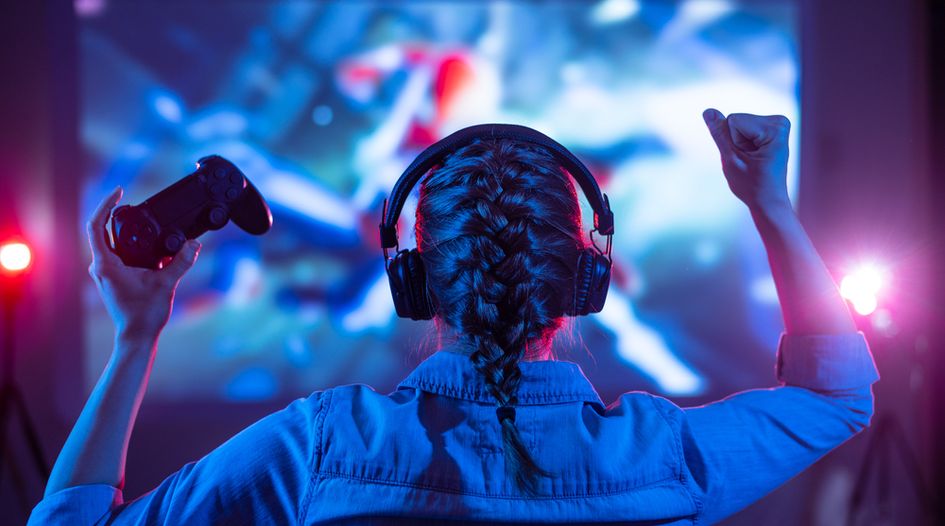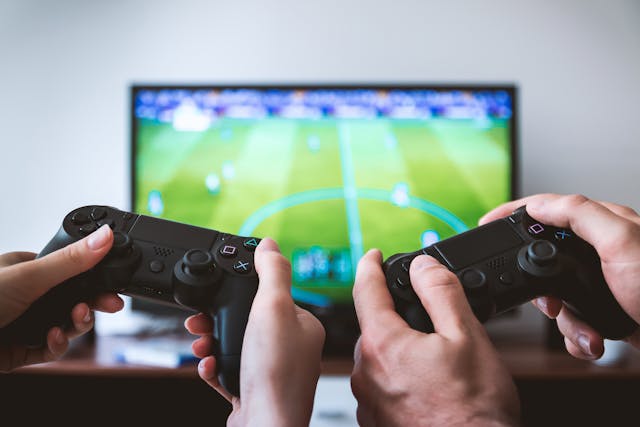Video games: TÜRKPATENT decisions are promising for broader brand protection in Turkey
- IP & Trademarks

This article was originally published on WTR.com, World Trade mark Review, in May 2024.
Abion's Yasemin Aktaş (Partner) and Eylül Gürel (Junior Associate) wrote a guest article for WTR where they explained why two recent rejections by the Turkish Patent and Trade mark Office could be good news for video games publishers that face trade mark squatting before owning any registered rights in Türkiye.
- Providing the background to trade mark squatting in the video gaming industry
- Discussing the TÜRKPATENT decisions broaden protection for unregistered marks
- Offer advice for brand owners to potentially defend against trade mark squatting in different sectors, before obtaining a Turkish registration and without evidence of use or popularity
The Turkish Patent and Trade mark Office (TÜRKPATENT) has rejected two trade mark applications for a popular video game brand, despite the opponent’s lack of filings to register its rights in Türkiye or providing evidence of use and popularity in the country, while the disputed filings sought protection for different goods and services. The decisions broaden the scope of protection afforded to brand owners defending themselves against local opportunists attempting to capitalise on the popularity of certain video games – even in relation to totally different goods and services.
Trademark squatting in the video game industry
Researchers are divided on the actual value of the market size of the video game market, but all seem to agree that video games are already vital for the economy and will have an even greater market share in no time. The number of current users is estimated to be around 3 billion gamers worldwide, and this is expected to increase in the coming years.
One of the many challenges that the video game industry faces is around the protection of intellectual and industrial property rights, particularly the names of games and the characters and elements within them. Some games rise to fame extremely quickly. Becoming popular in a short time frame creates challenges in the protection of intellectual and industrial property rights, since it can take longer to obtain registrations for IP rights than gaining reputation through, for example, social media platforms.
Another challenge relates to the global nature of the industry, which creates the need for protection in as many jurisdictions as possible and in as many sectors as possible. Each game’s popularity will reach far beyond its own industry thanks to merchandising. It is not unusual to see a café or a clothes retailer, for example, named after a popular video game, or elements from it.
This raises the issue of trade mark squatting, particularly in jurisdictions that are foreign to the developers or publishers of the game. Unfortunately, it is common for local undertakings named after globally popular games to file trade mark applications before their local IP offices, and for the legitimate rights holders to be unaware of this until it is too late to challenge the applications. Thus, legitimate rights holders end up needing to pursue legal action before the courts, which is more cumbersome and often results in more expenses.
It is understandable that video games developers and publishers do not budget that much for branding purposes at the beginning of the process of releasing a game. Instead, this remains in the background when financial decisions are made. However, this exacerbates the problem, as the scope of protection remains limited, particularly in comparison to the number of jurisdictions where protection is required.
TÜRKPATENT decisions broaden protection for unregistered marks
Recent decisions by TÜRKPATENT (E-71248886-130-240212515, dated 14 March 2024, and E-71248886-130-230469995, dated 24 November 2023) have shed some light on this issue by broadening the protection for unregistered video game marks for different services, ranging from car repair services and accommodation to the sale of perfumes and water softening devices.
It all started with the release of a video game whose brand had been registered for protection in only a few key jurisdictions – Türkiye not being one of them. The game belonged to one of the most well-known video game publishers; therefore, the popularity of the game increased rapidly in Türkiye. As a result, local trade mark squatters began to register the name for different goods and services, ranging from food and beverage products to car repair services, jewellery and construction. The content of the game and the occupations of characters in the game had nothing to do with these industries; therefore, there was no direct association between the game and the goods and services in the disputed filings.

Most of these filings have since been overcome through negotiations. However, two filings belonging to different parties and covering different services – one in Classes 35 and 37, the other in Class 43 – had to be challenged through oppositions before TÜRKPATENT.
The oppositions were based on the:
- the game publisher’s active use of the mark in Türkiye;
- well-known status of the mark in the context of the Paris Convention; and
- the alleged bad faith of the applicants.
Acceptance of all these claims requires submission of comprehensive evidence. However, this was not provided in either opposition due to difficulties in evidence-gathering, despite comprehensive use of the mark in Türkiye.
Nevertheless, a lack of evidence regarding the use and popularity of the mark in Türkiye and abroad did not disadvantage the video game owner. Instead, TÜRKPATENT took a favourable approach, finding that registrations of the mark in other countries were enough to determine that both opposed applications had been filed in bad faith. Both applications were rejected in their entirety on the grounds that it was unlikely the applicants had chosen to register the mark by a chance, without being aware of the game and the brand that was registered abroad, even though the applications sought protection for different sectors.
These decisions signal a new era of broader protection for gaming brands in Türkiye, where it may be possible for brand owners to defend against trade mark squatting in different sectors, before obtaining a Turkish registration and without evidence of use or popularity – traditionally the main bars to challenging trade mark squatters that have quickly appeared after the release of a popular new game.
Key Takeaways
- Broadened Protection: TÜRKPATENT expanded protection for unregistered video game trade marks, rejecting applications without requiring evidence of local use.
- Global Popularity Recognized: Decisions were based on the game's international fame, indicating bad faith in unrelated trade mark filings.
- IP Protection Challenges: Rapid game popularity often outpaces IP registration, leaving brands vulnerable to trade mark squatting.
- Developer Implications: Highlights the need for proactive IP strategies to protect game brands in multiple jurisdictions and sectors.
Images
Shutterstock/Anton27
Photo by JESHOOTS.com
Contact us
Do you want consulting, advice or are interested in any of our legal services? Contact us and we will help you!


